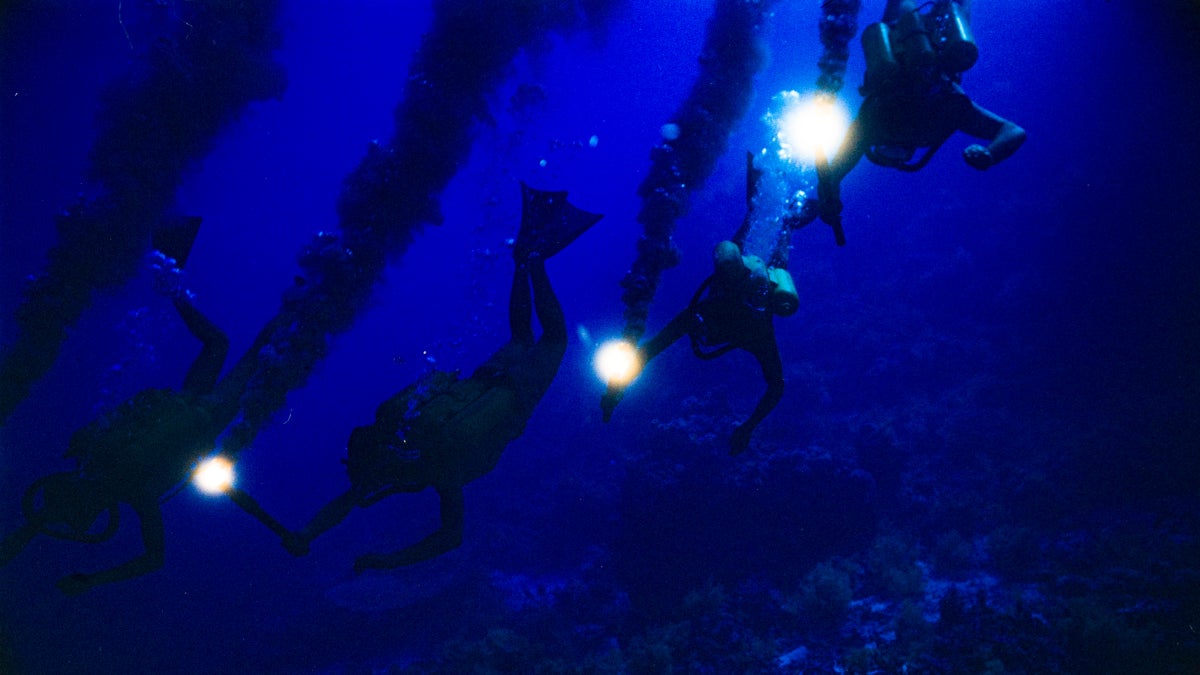No products in the cart.
Outdoor Adventure
3 New Documentaries to Watch in November
For exclusive access to all of our fitness, gear, adventure, and travel stories, plus discounts on trips, events, and gear, sign up for Outside+ today
and save 50 percent.
Did you know that Jacques Cousteau was very prickly about the terminology used to describe his ocean films? “I become furious when they label my films with the word documentary. It means ‘lecture from a guy who knows more than you,’” he says in a clip from the new film Becoming Cousteau. “Our films are not documentaries. They are true adventure films.” Unfortunately for Cousteau, we must crudely categorize his latest biopic as an exciting new documentary—one of three we can’t wait to watch this month. But then again, “true adventure films” would be an equally fair way to describe all of these new releases about marine life, identity, and obsession.
Becoming Cousteau
Director Liz Garbus’s previous work includes documentaries about iconic figures in show business, like Nina Simone and Marilyn Monroe. So she’s just the person to unearth some unexpected details about the man who (by our estimate) got millions of people interested in the ocean. For Becoming Cousteau, Garbus interviewed those close to the legendary explorer, listened to his audio journal entries, and sifted through 550 hours of archival material—Cousteau and friends captured an amount of day-in-the-life footage that would put some reality shows to shame. The result is a whimsical, sometimes melancholy look at how Cousteau’s obsession with the ocean arose and how his approach to conservation evolved over time. The film immerses viewers in the heady early days when scientists were just coming to terms with how much we didn’t know about the ocean’s depths; at the beginning of Cousteau’s career, the diving equipment we use today had yet to be developed. (He’d eventually make his own contribution with the Aqua-Lung, an underwater breathing device.) There was also a lot less eco-consciousness compared to today: Cousteau’s crew detonated dynamite in the water to count the number of fish within, and he made some money by prospecting for oil companies. Over time, Cousteau’s deep knowledge of ecology and concern for the future of the planet made his outlook so morose that ABC dropped his program, but his pessimism will seem more than appropriate to modern audiences. (Cousteau died in 1997.) “We are drawing blank checks on future generations,” he says in an interview. “We don’t pay. They are going to pay.”
Now playing in theaters.
They/Them
Lor Sabourin is a trans climber with a charming tendency to voice every thought going through their head on the wall. Their totally open-book stream of commentary (“Oh, I really wish that this wasn’t what I was doing right now”) sets the tone for the rest of They/Them, which tells the story of how Sabourin came to embrace their identity. The film, directed by Blake McCord and Justin Clifton, intersperses shots of Sabourin attempting difficult routes in the sandstone canyons of northern Arizona with details from their personal narrative. Sabourin thoughtfully explains some of the challenges they’ve been working through, including gender dysphoria, body dysmorphia, and an eating disorder. In sharing these struggles, they demonstrate how practicing vulnerability in their personal life has helped them push themselves to take on new challenges as a climber—and help others who may be going through similar experiences to feel less alone. Sabourin shares advice throughout the film, with applications that go far beyond the climbing world. “Fear isn’t stupid or something to hate, it’s wise, and it’s letting us know things about ourselves,” they say at one point during a climb. “And that’s not like an ooey-gooey, esoteric thing. We’re gonna feel anxiety or feel scared when our needs aren’t met, you know?”
Available to stream here.
The Loneliest Whale
The “loneliest whale,” otherwise known as the 52 Hertz Whale or 52 Blue, is so named because it calls at a frequency higher than other whales’ (I’ll give you three guesses what it is). Some scientists have guessed that the unusual cetacean may be a hybrid of whale species, while others have wondered if it may be deaf. Whatever the reason, since other whales can’t understand it, 52 Blue seems doomed to wander the seas alone. The whale’s predicament has led to incredible amounts of anthropomorphization and obsession, perhaps best chronicled by writer Leslie Jamison in 2014. “A singer in New Mexico, unhappy at his day job in tech, wrote an entire album dedicated to 52; another singer in Michigan wrote a children’s song about the whale’s plight; an artist in upstate New York made a sculpture out of old plastic bottles and called it 52 Hertz,” she wrote. Jamison’s essay also mentioned a filmmaker named Joshua Zeman who was working haltingly on a documentary about the whale. Seven years later, here it is. Zeman’s approach stands out because he actually gets a team of experts to take him out on a boat and search for the loneliest whale, something that has not been done before (others have only heard it through hydrophones). Zeman sets up the film as a mystery on par with the true-crime stories and urban legends that make up most of his oeuvre. But no need for spoilers; half the fun of The Loneliest Whale is meeting the fascinating experts and amateurs who are obsessed with 52 Blue. (One man, incredibly, gets on a boat and plays a clarinet that feeds into an underwater speaker, so that he can “jam” with the whales.) If that doesn’t convince you to watch this, the obliterating bliss of nearly nonstop whale calls will.
Now playing in theaters and on various streaming platforms.
Source link

